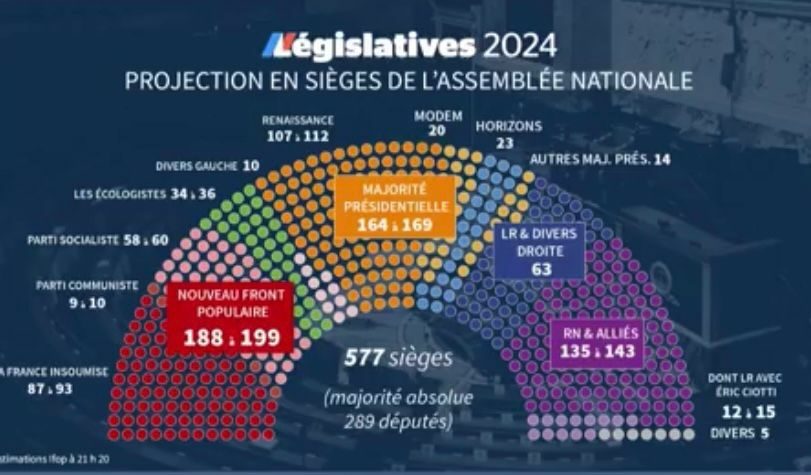PARIS, France—Marine Le Pen and her Rassemblement National party fell short of “expectations” in the second round of voting in France’s legislative elections this past weekend. The only problem with that? It was the corporate media and political classes that set those “expectations” in the first instance, hyping the threat of the “far-right” to help cobble together a far-left coalition and scare the French public into voting for it.
Macron’s gambit of calling an early election can not really be said to have paid off. The French President has lost his prime minister and seats in the National Assembly and will now be forced to grovel to socialist, green, and Marxist parties to try to form a coalition government in a hung parliament.
Meanwhile, Le Pen can safely say she has increased her seats in France’s National Assembly by 53, and improved her vote share against the backdrop of some wildly disproportionate results:
- Rassemblement National received over 10.6 million votes but only 142 seats;
- The far-left alliance got 7 million votes and 180 seats;
- Macron’s group got 6.7 million votes and 159 seats.
Le Pen has the largest group of Deputies (Members of Parliament) of any party. The others are coalitions, not parties. This is another feather in her cap and another cause for panic amongst France’s ruling class.

None of this is to say that Le Pen had a fabulous night. And to be clear, the far-left will celebrate their time in the sun – mostly by attacking police and vandalizing statues – for the next few weeks.
But the cold, hard reality for the French people is that this parliament cannot govern, and the nation is at its most divided since the end of the second world war.
This means there will almost certainly have to be fresh elections as soon as possible – after one year, according to the French constitution. Which means the next 12 months will be critical for both the New Popular Front (NPF) leftist coalition and the Rassemblement National.
The big losers over the last 24 hours are the centrist Ensemble coalition (down 86 seats) and the RINO-like Les Republicains (down 25 seats).
The fact that the far-left had to cobble together a devious tactical alliance at the last moment, which included standing candidates down across many districts in order to avoid losing more seats speaks volumes of the real left-right tug of war in which France finds itself.
Le Pen and her allies may feel uncomfortable for a few days, as they take stock of what they might have done differently. But don’t believe the corporate media framing. This was far from a blow out for the right. If anything, it puts them in an extraordinarily strong position for the Presidential race in 2027.

